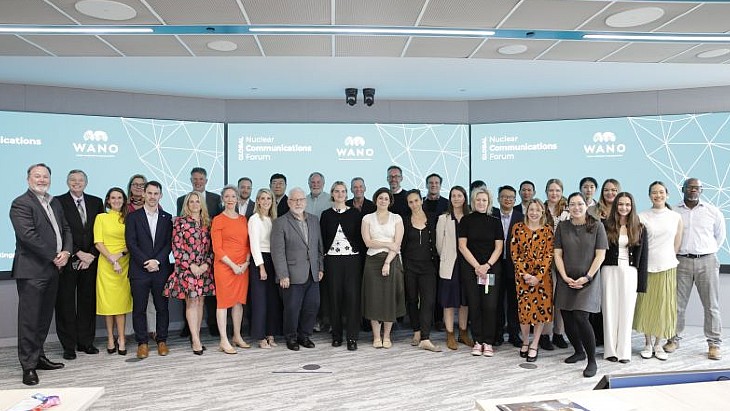He added: "We’re seeing communications play a pivotal role in driving performance at operating plants and facilities worldwide. Communications also plays a vital role in enabling plant restarts, life extensions, new builds, and the deployment of advanced technologies."
The World Association of Nuclear Operators (WANO) said 45 senior communicators, thought leaders, and industry stakeholders from 15 countries attended the event at its London, UK, headquarters. The forum is designed to be "a space for sharing knowledge, experience, and proven approaches to building effective communications functions. By strengthening connections between nuclear communicators globally, the Global Nuclear Communications Forum supports the industry’s growing demands through collaboration, practical tools, and the exchange of best practices - wherever members are on their nuclear journey".
Discussions "focused on harnessing digital innovation, responding to stakeholder expectations, and navigating the shifting communication landscape both internally and externally". Sessions also included moves towards "more proactive storytelling and reputation building, grounded in trust, transparency, and adaptability".
WANO says that its Communications Industry Working Group provides a practical mechanism for implementation of ideas from the forum and can shape tools and guidance that can be shared among its members.
WANO is a not-for-profit international organisation established in 1989 by the world's nuclear power operators to exchange safety knowledge and operating experience among organisations operating commercial nuclear power reactors. Its primary mission is to "maximise the safety and reliability of nuclear power plants worldwide, independent of geopolitical and national boundaries". It currently has 460 nuclear units as members, with 60 under construction.







_55401.png)
_23009.jpg)






